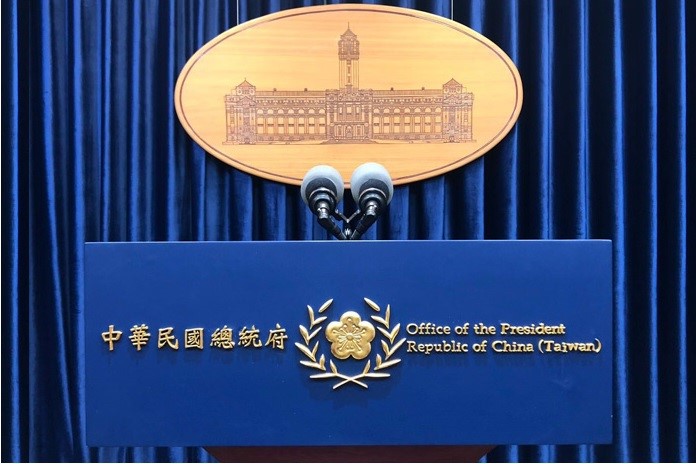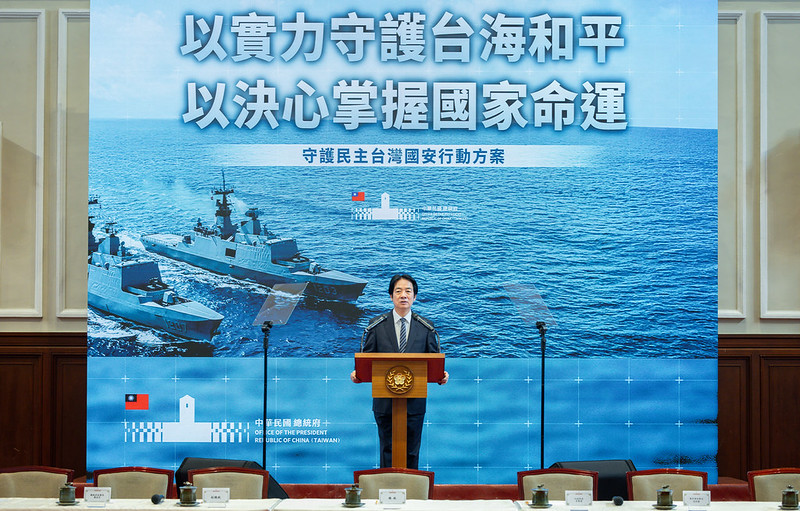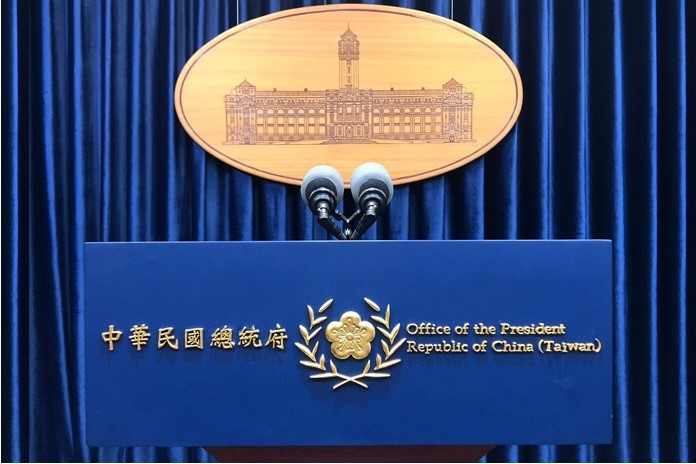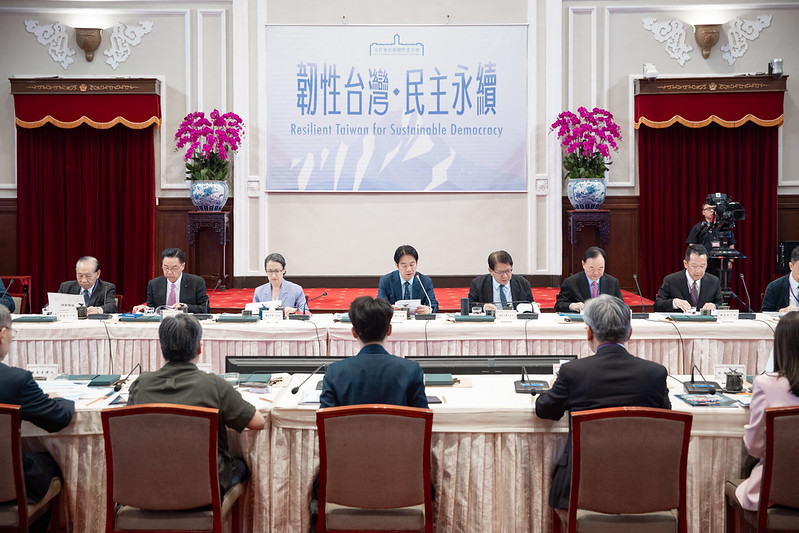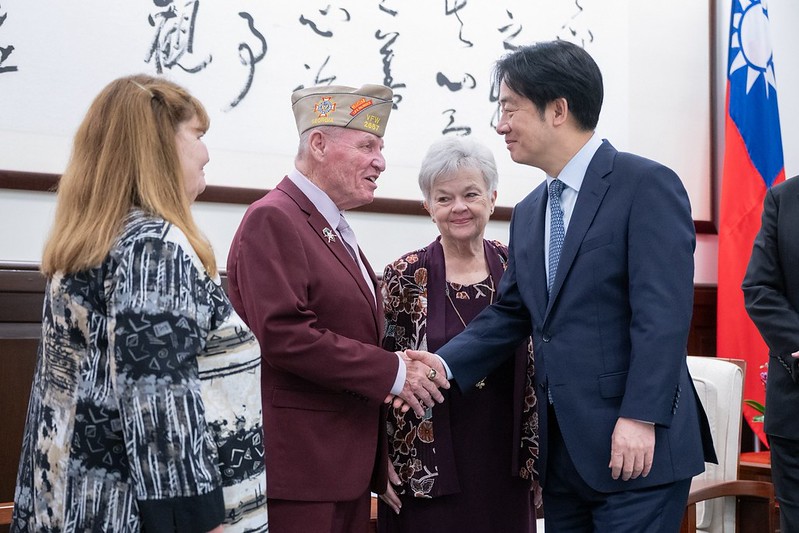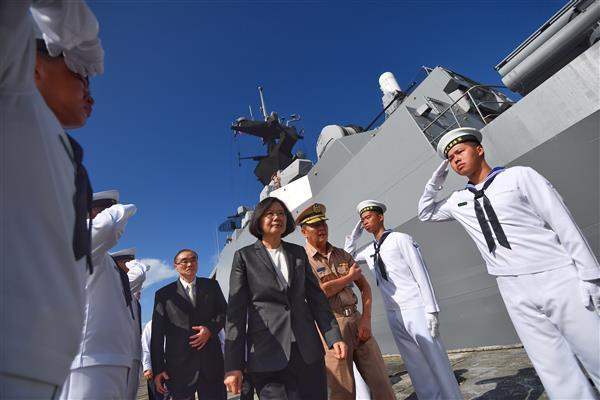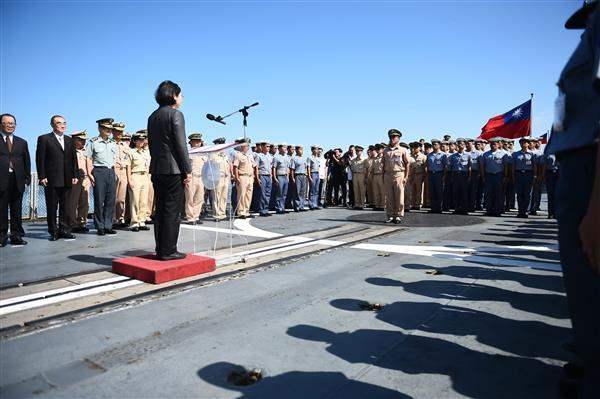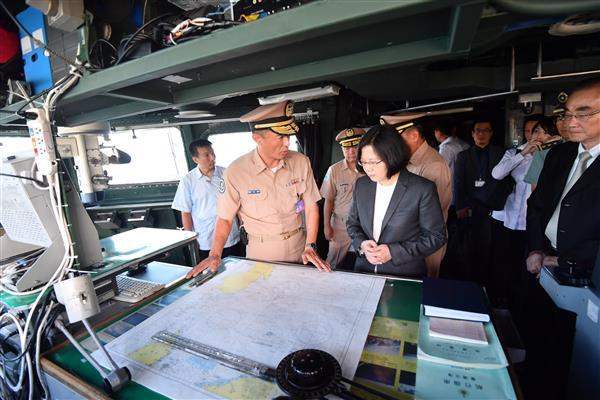News & activities
 News releases
News releases
On the morning of July 13, President Tsai Ing-wen went to the Zuoying Naval Base in Kaohsiung to conduct an inspection tour at the Naval Fleet Command, where she thanked naval officers and enlisted personnel for their hard work. While there she boarded the Di Hua Frigate, which was soon to depart to patrol the South China Sea, and delivered an address to the officers and enlisted personnel aboard ship.
The following is a translation of the president's remarks:
The Di Hua Frigate will head out today on a patrol task in the South China Sea. We have started this task ahead of schedule, and it is of singular significance because a new set of circumstances arose yesterday in the South China Sea.
The arbitral tribunal's award in the South China Sea Arbitration case—particularly its determination regarding the status of Taiping Island (also known as Itu Aba)—has seriously harmed the rights and interests of our country with respect to the South China Sea islands. This ship represents the Republic of China. The uniforms worn by each of you represent our faith in you. This patrol task is meant to demonstrate the determination of the people of Taiwan to defend their national interests.
We have always taken the position that disputes in the South China Sea should be resolved peacefully through multilateral talks. We are willing to work together with other parties to solve the dispute, on the basis of talks among equals, to promote peace and stability in the South China Sea region.
I am also aware that a lot of recent occurrences in the Navy have probably affected morale. The reason I've come here today is to bolster your morale.
I am commander-in-chief of the armed forces. I am responsible for them. When our armed forces are praised, I feel proud. If you suffer humiliation, I feel worse about it than anyone else. Therefore, I will strive together with all of you to restore the dignity of our armed forces.
However, I also want to emphasize that each and every military service member, from a private on up to the president, is responsible for maintaining the dignity of the armed forces. Dignity is not some sort of birthright that descends upon us without any effort on our part; each of us builds up the dignity of the armed forces a little bit at a time through hard work, discipline, and professionalism.
When I went to Taitung County a few days ago to inspect the typhoon damage there, I saw the armed forces transporting materials, dispatching personnel, and allocating resources with efficiency and discipline. People throughout the country witnessed the professionalism of our armed forces on that occasion. Our professional performance won praise from society, and regained the people's respect.
Now, the task—indeed, the mission—with which you have been entrusted is a bigger one still. We absolutely need all of you to do precisely what you've been training to do. We need you to sail to the South China Sea and defend our country's rights and interests. I call upon each and every one of you to fully perform your duties and give your level best to ensure that the mission is accomplished.
